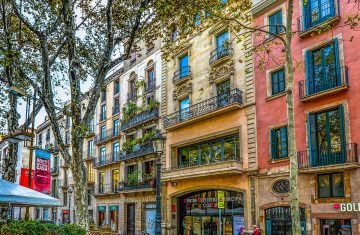Buying a property in Spain to live long-term is a relatively straightforward process, though it involves several steps and legal requirements. Here’s a guide on how to do it:
1. Research the Area and Property Type
Before purchasing, it’s important to research different regions of Spain to find the area that best suits your needs (cost of living, amenities, proximity to the beach, etc.). Decide on the type of property you want, whether it’s a house, apartment, or rural property.
2. Check Your Legal Status in Spain
If you’re an EU citizen, you can buy property without restrictions. If you’re from outside the EU, you can still purchase property, but some regions (such as coastal or strategic areas) may have restrictions. In any case, you’ll need to fulfill certain legal requirements.
3. Obtain a Foreigner Identification Number (NIE)
The NIE is a must for any foreigner wishing to carry out financial or legal transactions in Spain, such as buying property. You can apply for it at a police station in Spain or at your country’s consulate in Spain.
4. Open a Bank Account in Spain
You’ll need a Spanish bank account to handle payments related to the purchase (deposit, taxes, notary fees, etc.). You can open an account with your NIE and passport.
5. Hire a Lawyer
It’s highly advisable to hire a real estate lawyer who can guide you through the process and help avoid any legal issues. They will check that all documents are in order, verify the legal status of the property, and ensure the seller legally owns the property.
6. Sign the Deposit Contract (Contrato de Arras)
Once you find a property you like, a deposit contract is signed, which reserves the property. In this contract, the buyer agrees to purchase, and the seller agrees to sell. This usually requires a deposit of 10% of the property’s price.
7. Sign the Deed of Sale
After the deposit contract, you will sign the public deed of sale in front of a notary. This is the final step where the legal transfer of the property occurs. You’ll need to have the remaining amount of money ready to complete the purchase.
8. Pay Taxes and Additional Fees
Buying a property in Spain involves a series of taxes and additional costs, which vary depending on the region and property value:
- Property Transfer Tax (ITP) or VAT (IVA), depending on whether it’s a new or second-hand property.
- Notary fees and registration costs.
- Lawyer’s fees.
Be sure to budget for these additional costs.
9. Register the Property
After signing the deed, you’ll need to register the property with the Property Registry. This is an important step to ensure the property is legally in your name and that there are no outstanding debts or liens on the property.
10. Residency Management
If you’re not an EU citizen, purchasing property may be the first step to obtaining a residence visa. In many cases, the Golden Visa (for properties over €500,000) is an option for long-term residency in Spain. There are also other visa options depending on your situation.
Additional Tips:
- If you don’t speak Spanish fluently, it’s a good idea to have an interpreter or a lawyer who speaks your language to assist you.
- Make sure the property is free from debts, and that utilities (water, electricity, etc.) are up to date.
- Don’t forget about annual maintenance costs (property tax, community fees, insurance, etc.).
By following these steps and seeking proper advice, the process of buying a property in Spain can be safe and straightforward. Good luck with your purchase!


